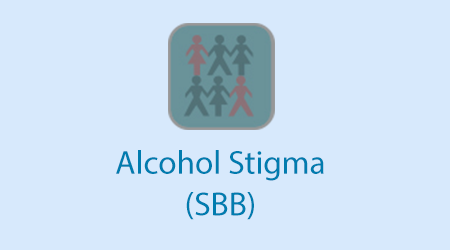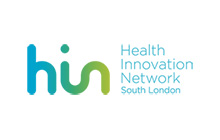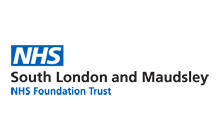About the Alcohol Stigma programme
Every patient has their own, very personal story. For many people at the more severe end of the Alcohol Use Disorder (AUD) spectrum, alcohol dependence can be chronic and relapsing, like many other long-term health conditions. At the less severe end of the spectrum, people who drink in a hazardous way can benefit from simple brief interventions delivered by healthcare professionals. People with alcohol dependence should be referred to specialist care. NICE has identified a wide range of effective treatments for harmful drinking and alcohol dependence and has published comprehensive clinical guidelines for all NHS professionals (www.nice.org.uk/guidance/cg115).
Taking a moment to understand this may help to improve longer-term outcomes and reduce re-attendance. This training will be of interest to all NHS staff who come into contact with patients – from receptionists to A&E clinicians, nurses, hospital consultants, junior doctors, hospital porters and beyond.
Alcohol related hospital admissions have doubled in the last eight years in England and nationally, alcohol related deaths have increased by 13% since 2004. People who attend hospital with alcohol problems are often not yet linked into specialist community addiction services. They may have many co-existing physical and mental problems (comorbidity) and other social support needs that prevent them from easily accessing appropriate care – often referred to as complex needs patients. The harms they suffer can be as a direct or indirect result of their alcohol problem; many serious health conditions can be caused directly by excessive alcohol consumption, and other health issues exacerbated.
Sometimes people with alcohol problems can be stereotyped, and judged to be less worthy of excellent treatment and care. Such stigma can be a barrier to help-seeking. It also impacts on treatment outcomes, and diminishes patients’ feelings of empowerment.
Frontline NHS staff regularly come into contact with patients with alcohol problems. While a small group of NHS professionals are specifically trained in addictions or alcohol, many frontline staff will have received little or no specialist training in this area. The new national NHS Commissioning for Quality and Innovation (CQUINs) payments framework for 2017-19 incentivises certain secondary healthcare clinicians to enquire about patients’ alcohol use, leading to possible brief intervention or referral to appropriate care.
More information
The Health Innovation Network is the Academic Health Science Network (AHSN) for south London, one of 15 AHSNs across England. We work across a huge range of health and care services through each of our clinical and innovation themes, to transform care in diabetes, musculoskeletal disease, alcohol and dementia, to accelerate digital health update into the NHS, and we’re passionate about education. HIN acts as a catalyst of change – identifying, adopting and spreading innovation across the health and care system in South London.
This project was funded by a small grant made available through the HIN from Health Education England working across South London (HESL), with the purpose of funding an educational resource to dispel stigma and myths about those who misuse alcohol.
A collaboration was established with King’s College London (KCL) and the South London and Maudsley NHS Foundation Trust (SLaM) in order to carry out this two phased project. A competition was run for local south London film schools, in order to engage the local community in this subject matter. Service users advised the competition entrants, and featured in all three shortlisted films. These were judged by a panel of experts and the winning prize went to Dasha Shevchenko of Roehampton University, whose film was taken forward for this training pack. The HIN then worked with colleagues at KCL and SLaM to produce and test the accompanying training materials and use local and national opportunities to disseminate the final training pack.
Please see this information sheet for more information and recommended reading about alcohol and stigma.
Clinical team

Ms Tabitha Lewis
Nurse Education Specialist, South London and Maudsley NHS Foundation Trust
Professor Colin Drummond
Professor of Addiction Psychiatry and Clinical advisor, National Addiction Centre, King’s College London
Professor Paul Wallace
Clinical Lead for Alcohol, Health Innovation Network
Project team

Ms Amy Wolstenholme
Project Manager, Alcohol Theme, Health Innovation Network
Dr Sally Marlow
Film Competition Project Manager and Public Engagement Fellow, King’s College London
Rebecca Jarvis
Programme Director for Alcohol, Health Innovation Network
Thanks
With sincere thanks to the service user representatives who gave their time and shared very personal experiences to make this project possible. Thanks is also due for the support provided through the HIN and to Health Education England elearning for healthcare for producing this online resource. Transcription provided by Francesca Thompson (HIN Alcohol Project Officer).
How to access
Terms of Use: This training package was designed for frontline NHS staff, both clinical and non-clinical. The training can also be used in the academic setting for the education of student doctors, nurses and other allied health professionals. The film must only knowingly be shown to groups of NHS employees and health school students. Thank you for your cooperation.
In order to access the Alcohol Stigma programme, you will need an elfh account. If you do not have one, then you can register by selecting the Register button below.
To view the Alcohol Stigma programme, select the View button below. If you already have an account with elfh, you will also be able to login and enrol on the programme from the View button.
NHS healthcare staff in England
The Alcohol Stigma programme is also available to NHS healthcare staff via the Electronic Staff Record (ESR). Accessing this elearning via ESR means that your completions will transfer with you throughout your NHS career.
Further details are available here.
Not an NHS organisation?
If you are not an NHS health or care organisation and therefore do not qualify for free access elfh Hub, you may be able to access the service by creating an OpenAthens account.
To check whether or not you qualify for free access via OpenAthens, you can view the eligibility criteria and register on the ‘OpenAthens’ portal.
Registering large numbers of users
If you are a HR, IT or Practice Manager and would like to register and enrol large numbers of staff within your organisation for access onto the Alcohol Stigma programme, please contact elfh directly.
Organisations wishing to use their own LMS
For HR departments wanting to know more about gaining access to courses using an existing Learning Management System please contact elfh directly to express interest.
More information
Please select the following link for more information on how to use the elfh Hub.






